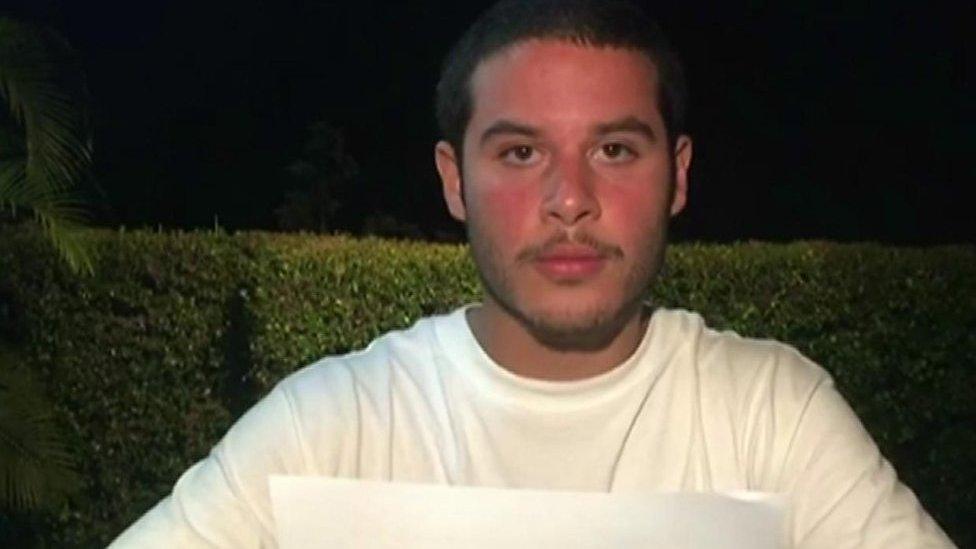Venezuela to probe teenager's death during protest
- Published
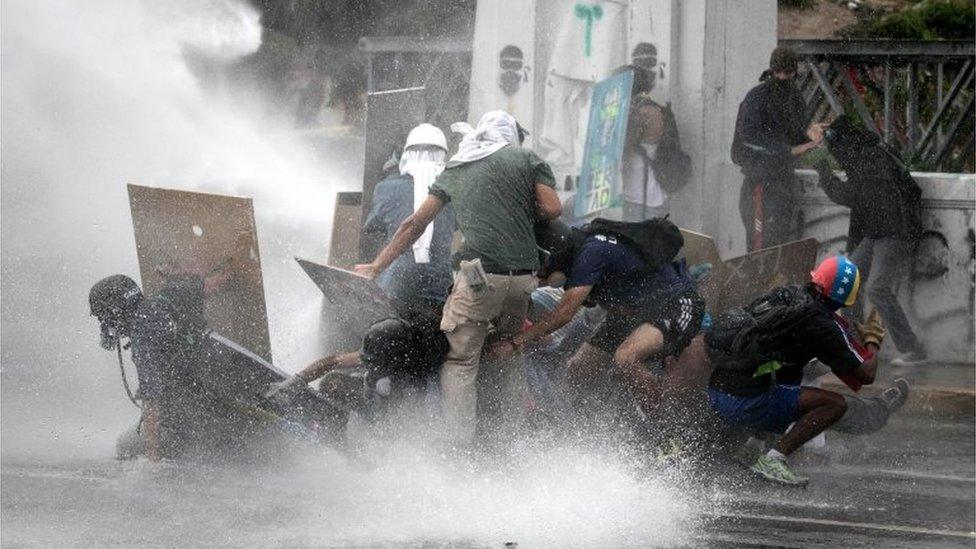
The number of people killed in protest-related violence has risen to at least 67
The chief prosecutor's office in Venezuela has ordered an investigation into the death of Neomar Lander, 17, who was killed during an anti-government protest in Caracas.
There are conflicting versions about how he died.
Witnesses said he died after being hit in the chest by a tear-gas canister fired by the police.
But rights ombudsman William Tarek Saab said the youth was killed by a "homemade explosive".
Footage taken by people in nearby buildings shows the teenager lying bloodied on the street.
Video taken by protesters shows first aid workers trying and failing to revive him.
Conflicting statistics
Mr Saab tweeted [in Spanish] that the post-mortem examination had revealed that Neomar Lander's "terrible death was not caused by a tear-gas canister".
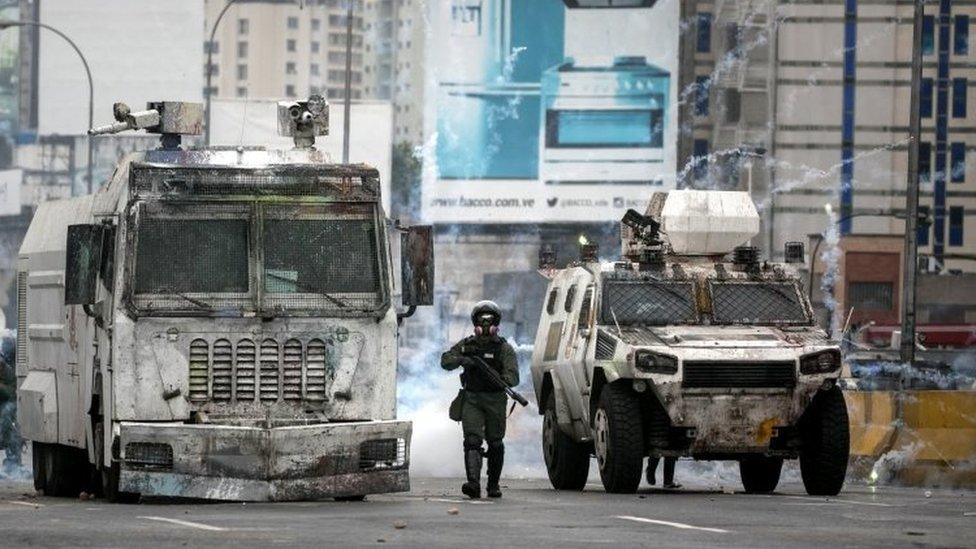
Police and protesters clashed again on Wednesday in Caracas
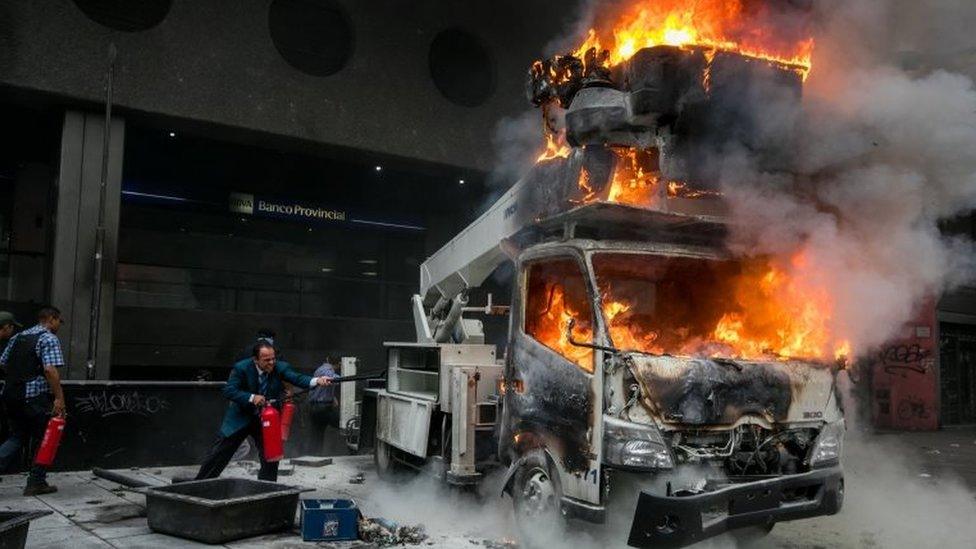
Protesters set a lorry alight
His comments were dismissed by opposition politicians who say that Mr Saab is loyal to President Nicolás Maduro and fails to act independently.
They also questioned why Mr Saab was commenting on the case, which is being handled by the chief prosecutor's office and not Mr Saab's office.
Mr Saab said Neomar Lander had "two broken ribs, an exploded left lung with internal bleeding and a burn on his forearm caused by a homemade explosive".
According to figures supplied by the chief prosecutor's office, 67 people have been killed in protest-related violence since a wave of anti-government demonstrations started on 1 April.
The ministry of communication puts the number of those killed since 1 April at more than 80.
Many of them are still under investigation and reports about how they died and who was responsible vary, with the government in many cases blaming the opposition and vice versa.
The case of 20-year-old basketball player Juan Pablo Pernalete gained particular prominence after Venezuela's chief prosecutor, Luisa Ortega, directly contradicted the version given by various government ministers about his death.
Ms Ortega said the student had been killed by a tear-gas canister fired by the National Guard and not, as Foreign Minister Delcy Rodriguez and Information Minister Ernesto Villegas had said, by a bolt gun fired by anti-government protesters.
She has since been labelled "a traitor" by the vice-president of the governing socialist PSUV party, Diosdado Cabello.
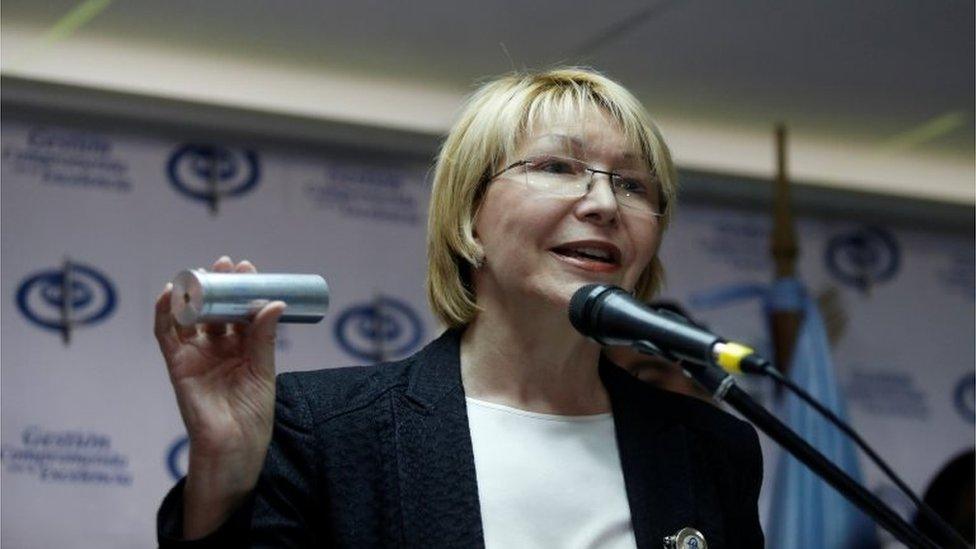
Chief prosecutor Luisa Ortega showed the type of tear-gas canister that killed Juan Pablo Pernalete
- Published1 June 2017
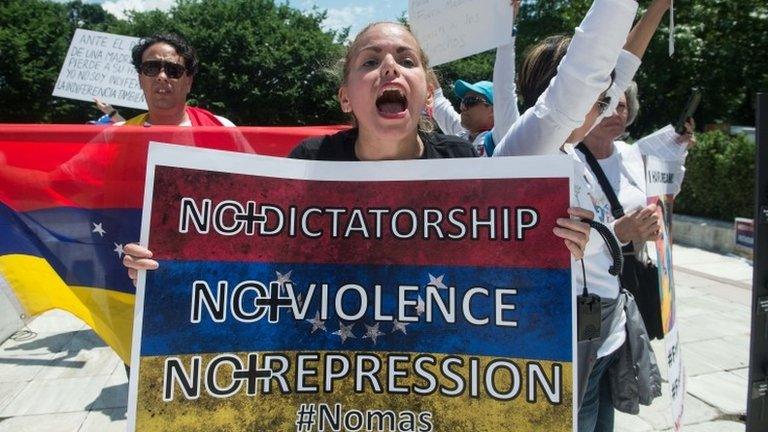
- Published27 April 2017
